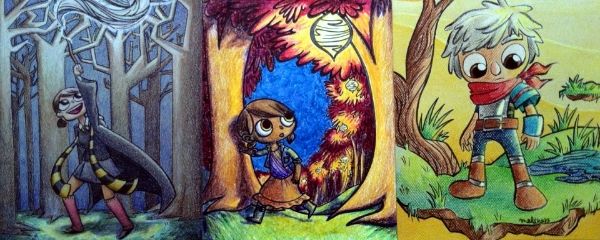The subject of continuity has been popping up in conversation a lot lately.
(For now I'm going to disregard creator-owned publishers like Dark Horse and focus on the two big kahunas because it's where the controversy is most relevant.)
Although I understand the argument for it, I don't get bent out of shape when continuity doesn't occur. As a comic fan, I can only dream of being given the opportunity to write a story for one of Marvel or DC's characters. (Not that I'm even a writer.) And I'm sure it's safe to assume that writers like Geoff Johns and Ed Brubaker are fans of the characters they write for. With that in mind, I don't find it right to expect every story they tell to connect with the rest -- if these writers have been fans for a long time, they've probably had ideas brewing for a while. There is another challenge that comes with one writer being signed on to a title for a specific amount of time before another is sort of "tag-teamed" in to write the following issues. It is also my understanding that there are limitations to what writers at DC and Marvel can get away with, but still -- all things "canon" might have to change in order for it all to make sense.
Who cares!
I'd rather read a good story than have to worry about Villain X killing off Hero B during Story Arc 7 back in '89; a time before I could even read. If I have to make a timeline the size of my car in order to comprehend a 7-issue arc, my interest dwindles. One-shots (complete stories in one issue) and mini series' are my favorite formats. Most of the time they aren't considered canon, and are written for the sake of telling a good tale about our favorite characters. Look at Kingdom Come - written by Mark Waid and illustrated by [the godly] Alex Ross, it's one of my personal favorites and it has nothing to do with anything in terms of DC canon. It's even set in the future.
Marvel's Strange Tales I & II are made by combinations of numerous writers and artists, and they're some of the most amusing comics by Marvel I've ever read. I found James Stokoe's 3-page comic about the lonely reality of the Silver Surfer's job as a herald more memorable than the 2011 Summer "event" Fear Itself.
My theory is, collectors and fans invest so much time and money into comics and desire some sort of real reward for all their hard work. Putting time into reading all these arcs and collecting all of a specific title turns into an obligation because of an addiction or commitment to it. It's apparent that some long time fans lose sight of why they started reading them when they were kids. If we start to pick them apart and get grouchy about consistency, the fun goes away. If more fans could take them for what they are (and not what they have been in the past or could be in the future), ratings and reviews would be drastically different. It should come down to good or bad, not potential or lack thereof. Just like novels, they take you to a place outside of reality where anything is possible.
Comics are supposed to be fun. Putting energy into griping over a story written by J. Michael Strazcynski being inconsistent with something Jonathan Hickman wrote is just as pointless and redundant to hear about as it is when someone complains about the Harry Potter movies lacking parts that occurred in the book. We already know.

2 comments:
Testify! Why is it we as readers try to impose nonfiction constraints on fictitious works?
Hmm, maybe it's because comics being TOO unrealistic makes them harder to get lost in? If we can't imagine ourselves in it, it's difficult to relate to and therefore less enjoyable. Perhaps? (:
Post a Comment